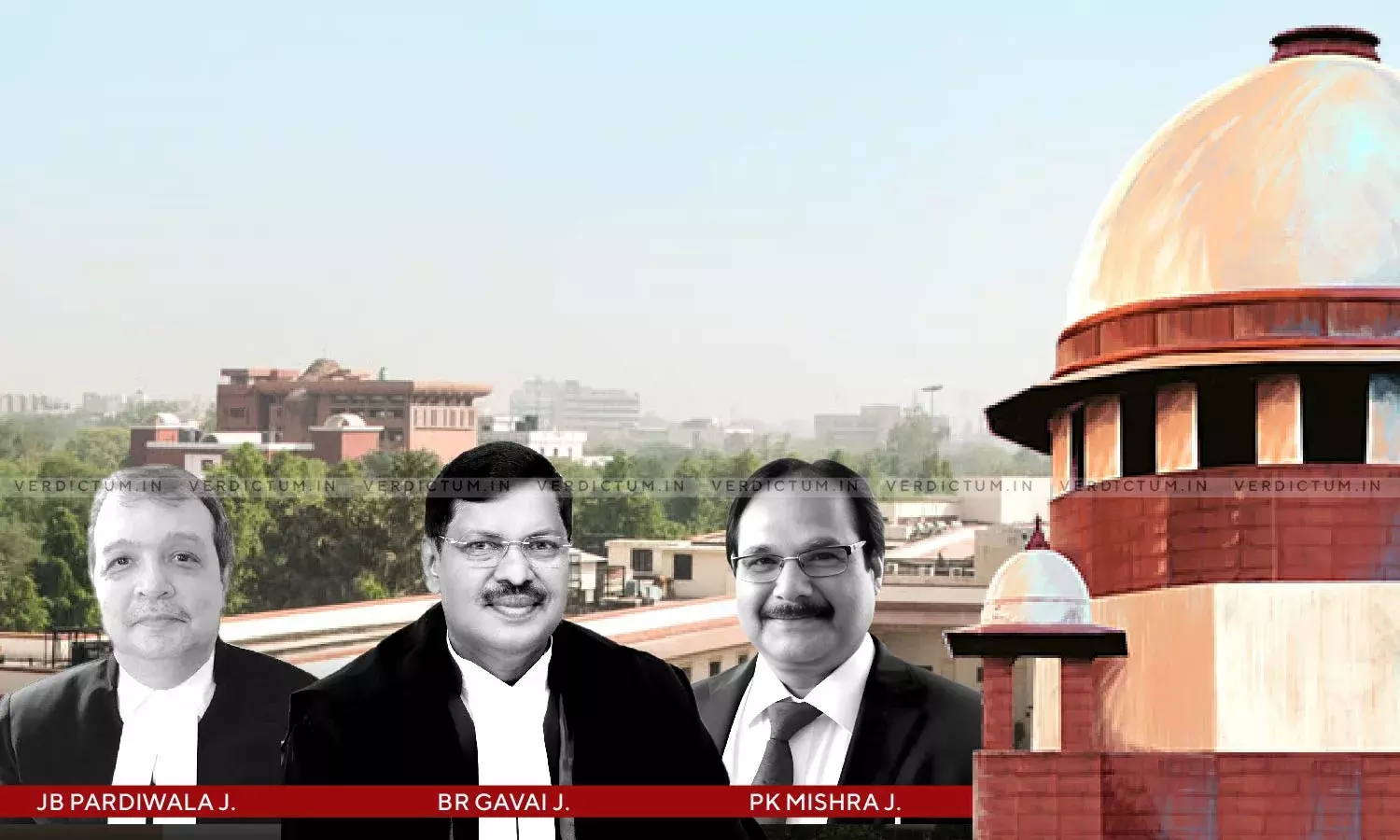Section 162 CrPC Does Not Prevent Trial Judge To Examine Chargesheet Suo Moto Or Asking Questions From Witnesses To Contradict Them: SC

A Supreme Court Bench of Justice BR Gavai, Justice JB Pardiwala, and Justice Prashant Kumar Mishra has clarified that Section 162 of the Criminal Procedure Code (CrPC) does not impede a Court’s inherent power to examine documents or engage witnesses in questioning, even when this occurs suo motu or on the Court’s own initiative.
In that context, it was said that, "There is in our opinion nothing in Section 162 of the CrPC which prevents a Trial Judge from looking into the papers of the chargesheet suo motu and himself using the statement of a person examined by the police recorded therein for the purpose of contradicting such person when he gives evidence in favour of the State as a prosecution witness. The Judge may do this or he may make over the recorded statement to the lawyer for the accused so that he may use it for this purpose."
Notably, Section 162 of the CrPC prohibits the use of statements made to the police during the course of the investigation.
Senior Counsel Aditya Sondhi appeared for the appellant-convict, while Counsel Samir Ali Khan appeared for the State.
In this case, the Court was hearing an appeal filed by an accused convicted and sentenced to death for the rape and murder of a 10-year-old girl.
The central issue that emerged during the trial was the glaring contradiction between the statements given by witnesses to the police during the initial investigation and their subsequent testimony in Court.
The Apex Court observed that the Trial Judge should have looked at the record of the police investigation until after the investigating officer had been examined and discharged as a witness. In that context, it was said that, "There is, in our opinion, nothing in Section 162 CrPC to prevent a Trial Judge, as distinct from the prosecution or the defence, from putting to prosecution witnesses the questions otherwise permissible, if the justice obviously demands such a course. In the present case, we are strongly of the opinion that is what, in the interests of justice, the Trial Judge should have done but he did not look at the record of the police investigation until after the investigating officer had been examined and discharged as a witness. Even at this stage, the Trial Judge could have recalled the officer and other witnesses and questioned them in the manner provided by Section 165 of the Evidence Act. It is regrettable that he did not do so."
The Court also clarified that it seems absurd to suggest that a Judge cannot put a question to a witness which a party may put. Referring to the case of VK Mishra vs State of Uttarakhand, the Court was of the view that in cases whether the evidence given in a Court implicates persons who are not mentioned in the first information report or police statements, it is always advisable and far more important for the Trial Judge to look into the police papers in order to ascertain whether the persons implicated by witnesses, at the trial had been implicated by them during the investigation.
Subsequently, the Supreme Court set aside the impugned judgment and remitted the matter back to the High Court. The serious lapses on the part of the defence in not proving major contradictions in the form of material omissions surfacing from the oral evidence of the prosecution witnesses were highlighted.
Cause Title: Munna Pandey v. State of Bihar
Click here to read/download the Judgment

